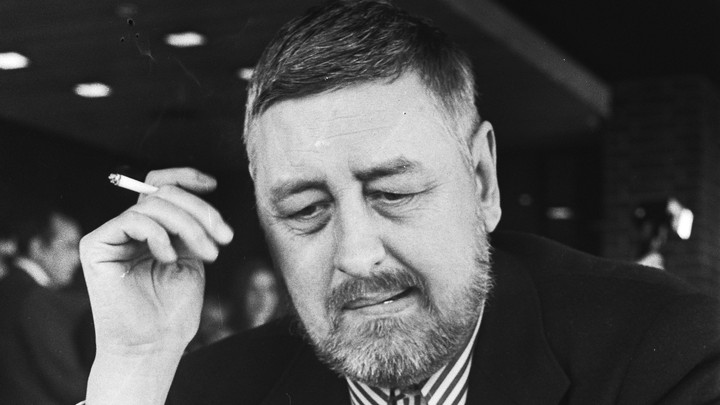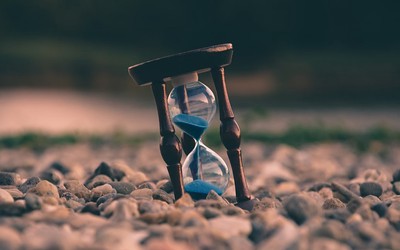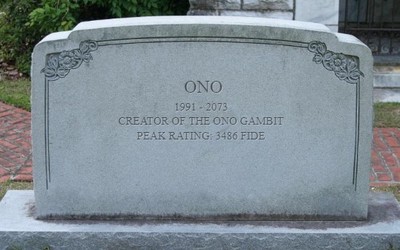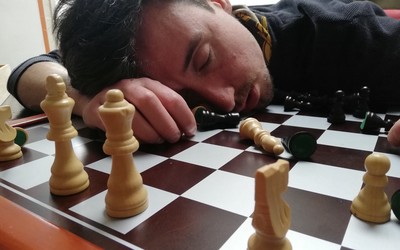
I Hate Winning
Chess truly is eternal suffering.Losing hurts, but equally as painful?
Winning.
Winning brings about a whole different type of suffering. Being up a piece or having a winning advantage is stressful.
This curiosity was well put by dutch Grandmaster Jan Hein Donner:
"I love all positions. Give me a difficult positional game, I will play it. Give me a bad position, I will defend it. Openings, endgames, complicated positions, dull draws, I love them and I will do my very best. But totally won positions, I cannot stand them."
This quote is very relatable to many people, or exactly 50% of people if my Twitter followers are to be believed.
https://twitter.com/TheOnoZone/status/1713634755407757670
But more than capturing the sentiment of many chess players, this quote brought up one question I couldn’t stop thinking about.
Why?
Why did Hein Donner (like so many of us) hate playing totally won positions?
Why Does Winning Hurt Too?
So why do we feel so uncomfortable when we are winning? Is it the fear of the extra pain that will come from losing from such a great position? Or is it simply the pressure of expectation that we perhaps put on ourselves?
Either way the emotions we experience when we are winning can often cause us to start to crumble. This is something I have observed and thought about a lot as a chess coach.
Much more than being a technical skill, I think advantage capitalisation is as much, if not more a psychological skill, than a chess skill.
The key issue, in my experience, seems to be that once a winning position has been reached (and the anxiety that comes with being in a totally winning position kicks in) my students often stop trying to win, and start trying not to lose.
They are winning and start looking for a quiet corner to hide in. They shut their eyes and hope the game will just somehow end when they open them again. Maybe if I just do nothing for long enough the game will be over and I will be victorious?
How do I (continue) to try and win?
The inspiration for this article came not from Hein Donner, but from my student Nick who claimed he had a unique ability to blow every winning position he found himself in. Like many of us chess players, Nick suffers from a classic case of chess drama syndrome. He of course didn’t blow every winning position. But the feeling had a basis in truth. Nick did struggle to get the ball over the line so to speak.
As we began to explore why, partly from Nick’s own (honest) game annotations, we found the solution:
Once Nick found himself in a totally won position - up a piece, or with a massive positional advantage, he stopped trying to win and he started trying not to lose.

He’d offer queen trades that made his position worse in the hope his opponent would simply agree to simplifying. He’d randomly move pieces around in the endgame just waiting for something to happen - some random tactic to appear.
In short he stopped playing with purpose, he stopped playing with a plan, and although I’m not entirely sure why yet, I’m 100% certain that as soon as we feel lost in chess and we start playing what I call "one-move-chess," that is the point at which we start making terrible, face melting blunders.
So how did we fix Nick’s problem?
Playing with a Plan
I am a big fan of what I call planning tools, simple things to do that guide our play when we feel at a loss for what to do. As soon as you start thinking things like, maybe I could put my bishop there or maybe I’ll attack that rook with my knight, there's a good chance you don’t know what to do. You don’t have a plan. You are playing one move chess. In the middlegame, GM Jacob Aagaard’s three questions are ones I find pretty helpful:
What is my worst placed piece?
Where are the weaknesses?
What is my opponent's plan?
Answering these can help you to find a series of moves or a micro-plan in any position. Targeting a weak pawn, transferring a knight to a good square, exchanging off a bad piece.
What helped Nick the most was extending this to the endgame. Endgames can be a little confusing for the beginning chess player. I think this is partly due to lack of experience - until you reach a certain level in chess, you don’t see many endgames. Because most games are decided long before then.
In the endgame you are not often left with enough material to reasonably mount a checkmating attack and so you often have to do something else.
In my favourite endgame book, Amateur to IM (chosen as one of my ten favourite wordy chess books) Jonathan Hawkins describes the point of the endgame as follows:
Strategy (or the accumulation of strategy) is ultimately either an attack on some aspect of the enemy position, or the promotion of a pawn.
If we reduce this specifically to the endgame we can amend this slightly and state our two fundamental ideas as:
- Promoting our pawns
- Attacking the enemy structure
In an endgame the material will often be too reduced to mount a successful attack on the king, so in most cases when we discuss objects of attack we are talking about pawns and pawn structures. We should also keep in mind the defensive corollaries of this:
- Improving our own structure
- Blockading passed pawns
Have a queenside majority? Advance it and try to create a passed pawn, does your opponent have any pawn weaknesses? Attack and try to win those pawns. It sounds simple, but having a purpose, having a plan is just as important when you are winning than when the position is equal. No game will win itself.
Nick also found his level of anxiety reduced when he had a plan or a purpose, he no longer felt like there was a mine under every square he put a piece down on. He wasn’t afraid to make moves anymore because each move had a purpose. He was trying to win all the way until the game was actually won.
Good job Nick.
Conclusion
So if like Hein Donner and my student Nick, you hate winning as much or more than you hate losing, then consider whether or not it’s because that is the point at which you stop trying to win and start trying not to lose. No advantage will capitalise itself. You must keep trying to win until you have won.
Want to hire me as your chess coach? Click here
If you want to hear what my voice sounds like, I have a podcast now.
If you want to see my face, please support my work on Patreon. There is a Zoom hangout for patrons tomorrow (Friday 17th at 1800UTC) where you can meet last weeks podcast guest, YouTuber and Twitch streamer Sara Herman.
More blog posts by TheOnoZone

Adult Chess Clock
I used to say that nobody doesn’t have the time for something, they just don’t want to prioritise it.
The Ono Gambit
I am getting older.
Losing Consciousness
It was game over.
